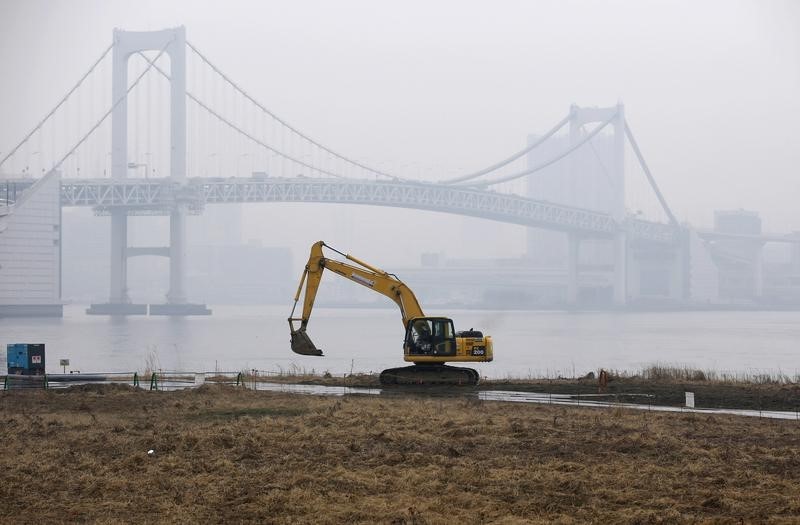By Tetsushi Kajimoto
TOKYO (Reuters) - Recession-hit Japan suffered a fresh blow on Thursday as data showed a key gauge of capital spending tumbled in October - a worrying sign for its recovery given that business investment was a big drag on the economy in the third quarter.
The machinery order data is a stark reminder of the challenges facing Prime Minister Shinzo Abe, who heads into an election on Sunday seeking a fresh mandate for his economic-revival strategy that critics have panned as a failure.
Abe is expected to win the election comfortably, but doubts about his "Abenomics" recipe of aggressive monetary stimulus, fiscal spending and pro-growth reform have sharpened since Japan unexpectedly slipped into a recession in the third quarter.
The slump was triggered by a sales tax hike in April, which chilled consumption, while capital expenditure also carved out a big slice off output, sliding a bigger-than-expected 0.4 percent in the third quarter.
The 6.4 percent on-month fall in core machinery orders, a highly volatile data series seen as an indicator of capital spending in the coming six to nine months, suggests business investment will struggle to underpin a rebound in the economy.
The figure issued by the Cabinet Office was far worse than a 2.4 percent fall forecast by economists in a Reuters poll, and followed a 2.9 percent month-on-month gain in September.
"Firms' activity in domestic output is unlikely to gather strength until they get rid of inventory" that piled up after the tax hike, said Kenta Ishizu, economist at Mizuho Securities.
"I don't think capital spending will be accelerating ahead. As long as the economy remains weak, companies will continue to revise down their spending plans."
The government sees capital spending picking up, though some analysts say sluggish domestic demand after April's sales tax hike will continue to drag on business investment.
The Bank of Japan's tankan showed firms' positive stance on investment. But companies have so far been slow to implement their spending plans and remain wary of boosting wages, highlighting the challenges Abe and the BOJ face in nursing the economy to sustainable growth and meeting the central bank's 2 percent inflation goal.
Core orders are seen slipping 0.3 percent in the current quarter after bouncing to a 5.6 percent gain in July-September.
They would need to grow 3.3 percent each in November and December in order to prevent a quarter-on-quarter decline in the final three months of 2014, a Cabinet Office official said.
Abe's strategy to spark durable growth in the world's third-largest economy and cast off 15 years of grinding deflation has had only partial success.
The stock market has rallied sharply since Abe came to power in December 2012, while the yen's sharp slump has allowed export companies to reap windfall profits, though very little of these have been ploughed into new investment or wage increases.

The BOJ is likely to cut its inflation forecasts next month, making its 2 percent inflation goal look ever more ambitious, just few months after its shock decision on Oct. 31 to expand its already massive asset purchases.
(Editing by Shri Navaratnam)